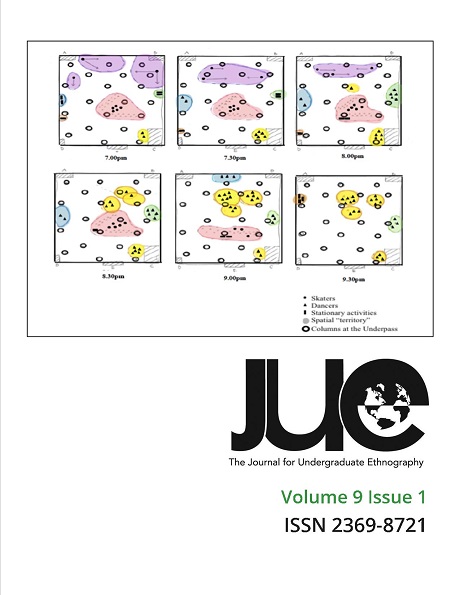From Pedestrian Thoroughfare to Public Space: The Social Life of the Esplanade Underpass
DOI:
https://doi.org/10.15273/jue.v9i1.8881Keywords:
public space, sociospatial dynamics, Singapore, urban ethnographyAbstract
This study examines the Esplanade Underpass, an underground thoroughfare in Singapore that supports a range of public users and uses, despite not being a formally planned or officially designated public space. The Esplanade Underpass serves as an interesting case study as most public spaces in Singapore are zoned and governed by regulations of various kinds. The Esplanade Underpass, however, is minimally subject to these forms of surveillance and control. This research asks: What are the characteristics of the Esplanade Underpass that set it apart from the narrative of order and control often imposed upon public spaces in Singapore?” Through participant observation and interviews, the study investigates the users and uses of the Underpass. The study reveals how a range of users of the Underpass adapt the physical space for various uses, consequently establishing a series of informal social norms. Through varied habitual uses, the Underpass has been transformed from a place of transit into a meaningful public space which possesses a vibrant social life. The study highlights the nuances of social engagement that can work to make spaces “public” and offers a novel understanding of informally formed public space in Singapore.Downloads
Published
2019-03-12
Issue
Section
Articles


